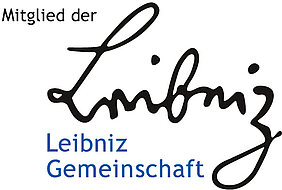The Leibniz Institute for Agricultural Engineering and Bioeconomy (ATB) will be a guest in Section D ‘Mathematics, Natural Sciences and Engineering’ of the Leibniz Association. The closer cooperation of the ATB, which is part of Section E, with institutes in Section D is particularly intended to enable the development of innovative technologies and solutions for sustainable circular bioeconomic systems, as well as to link research and transfer more closely.
The Leibniz Association divides its member institutes into five sections that represent the scientific profile and expertise of the association. The sections promote scientific exchange, contribute to the association's science policy strategy and develop evaluation criteria with the aim of strengthening cooperation and developing innovative solutions to societal challenges.
Traditionally rooted in Section E, ATB is concerned with research and sustainable transformation of agricultural, food, industrial and energy systems and is a driver of systemic-technical bioeconomic research. Currently, ATB is cooperating with numerous institutes of Section D in joint projects, Leibniz research alliances and networks, as well as Leibniz Labs. Institutes of Section D are also central partners in the network of the Leibniz Innovation Court for Sustainable Bioeconomy (InnoHof). Thematic and methodological links include optical sensor technology, materials research and modelling. Through its now confirmed guest membership in Section D, ATB is strengthening its existing position as a link between the two sections.
Prof. Barbara Sturm, Scientific Director of ATB, values the extended network: “The guest membership in Section D enables us to combine our technological expertise in the bioeconomic and environmental science fields with the technical and natural science approaches of the Section D institutes and to further advance the development and promotion of technologies to address complex challenges such as transforming our economic system into a circular bioeconomy, the energy system transformation or the digitalisation. This opens up new avenues for innovative research projects and strengthens the transfer of knowledge between disciplines.”
ATB remains an active member of Section E, which focuses on understanding the interactions between hydro-, litho- and atmosphere and the consequences of climate change. ATB's vision of promoting a circular, diverse and sustainable bioeconomy is strengthened by the new collaboration with Section D. ATB creates scientific foundations based on focused knowledge and application-oriented expertise in agromechatronics, systems process engineering, computer science, sensor technology and modelling, technology assessment and microbiome biotechnology, which contribute to the transformation of production systems and a biobased circular economy.

